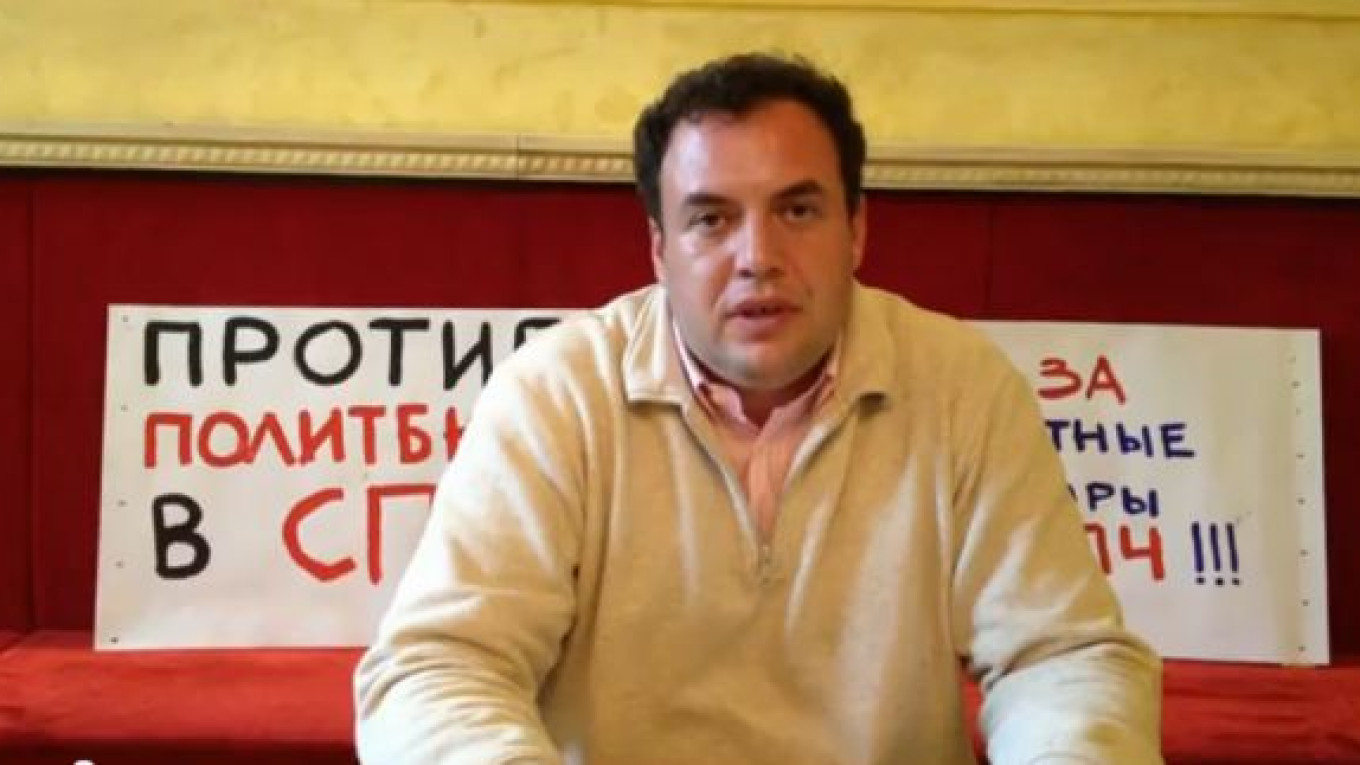A prominent human rights activist Monday on a cot in the lobby of the Public Chamber to protest the exclusion of dozens of people from a shortlist of candidates to join the Kremlin human rights council.
The decision by Alexander Brod, head of the Moscow Bureau for Human Rights, to unfold and occupy the cot in the lobby of the building on 7/1 Miusskaya Ploshchad near the Novoslobodskaya metro station added drama to what had been expected to be a colorless selection process.
"Supporting me are dozens of people who have received rejections for no reason or were not contacted by the council at all," Brod, who was among the rejected candidates, said by telephone.
The council's working group, which is seeking to fill 13 seats in 13 fields of expertise, has rejected 104 candidates over incorrectly filled out forms or a lack of experience, Interfax said. Its shortlist of 86 people was unveiled online over the weekend, and the public can vote on the candidates through Sept. 15.
Seventeen people quit the council this year over discontent with December's parliamentary elections or the new way of selecting council members through the online vote.
Before June, new members were chosen by the president from a list of nominees put together by sitting council members. Now, at the proposal of the Kremlin, nongovernmental organizations nominate candidates who are then on by Internet users. The winning names will be forwarded to President Vladimir Putin for a final decision.
Council head Mikhail Fedotov said he was "shocked" at Brod's reaction to the working group's consensual decision to exclude part of the candidates, Interfax reported.
Yelena Panfilova, head of Transparency International's Russia office, who left the council this year, told The Moscow Times that she didn't understand why Brod wanted a seat on a "consulting body" with "limited powers" when he had "many other opportunities" to defend human rights elsewhere.
Brod has been accused of ties to the Kremlin. In 2005, a group of human rights activists signed a joint letter on Anticompromat.org calling on international organizations not to provide grants to Brod's bureau, accusing him of cooperating with the Kremlin.
Brod called the letter "dirty" on Monday but did not deny its allegations. "I cooperate with the authorities, while others cooperate with the [U.S.] State Department," he said.
The rejected candidates include lawyer Vladimir Zherebenkov; Garegin Tosunyan, president of the Association of Russian Banks; Anton Tsvetkov, head of nongovernmental organization Officers of Russia; Sergei Kanayev, head of the Federation of Car Owners; Valery Yakov, editor-in-chief of Noviye Izvestia; and feminist writer Maria Arbatova, Interfax said.
Those on the shortlist include prominent physician Yelizaveta Glinka; human rights activists Valery Borshev and Andrei Babushkin; Lilia Shibanova, head of Golos elections watchdog; lawyer Anatoly Kucherena; and liberal politician Irina Khakamada.
In addition to Panfilova, those who left the council included Lyudmila Alexeyeva, head of the Moscow Helsinki Group; Alexei Simonov, head of Glasnost Defense Foundation; and Svetlana Gannushkina, head of refugee aid organization Civil Assistance.
Related articles:
A Message from The Moscow Times:
Dear readers,
We are facing unprecedented challenges. Russia's Prosecutor General's Office has designated The Moscow Times as an "undesirable" organization, criminalizing our work and putting our staff at risk of prosecution. This follows our earlier unjust labeling as a "foreign agent."
These actions are direct attempts to silence independent journalism in Russia. The authorities claim our work "discredits the decisions of the Russian leadership." We see things differently: we strive to provide accurate, unbiased reporting on Russia.
We, the journalists of The Moscow Times, refuse to be silenced. But to continue our work, we need your help.
Your support, no matter how small, makes a world of difference. If you can, please support us monthly starting from just $2. It's quick to set up, and every contribution makes a significant impact.
By supporting The Moscow Times, you're defending open, independent journalism in the face of repression. Thank you for standing with us.
Remind me later.


